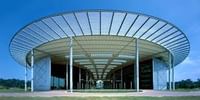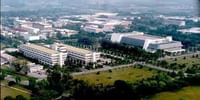This activity requires specific knowledge and expertise in physical, engineering and social sciences together with principles and methods of engineering analysis and design to specify, predict and evaluate results that can be obtained from a system.
An Industrial Engineer roles focuses on work design, quality improvement, planning and scheduling resources, modelling operation systems and ergonomic and safety in manufacturing industry and service industry (health care, theme parks, logistics). An Industrial Engineer possesses a background in mathematics and engineering principles. These technical knowledge are complemented with other non-technical knowledge such as psychology, sociology, physiology and others. In order to complete the education in industrial engineering, the above aspects are further complemented with understanding of the overall systems operations such as cost, quality and productivity, which constitute the basis of any systems performance. Industrial engineering profession is an interdisciplinary in nature and can be applied in many sectors and in situations where cost, quality and productivity are an important criteria. Hence, an industrial engineering graduate can be employed in both industrial sector and service sector (telecommunication, utility, healthcare, government, education, financial, etc.)
Programme Objectives
To produce graduates who are able to:
? Demonstrate their academic and technological excellence professionally and globally, particularly in areas related to industrial engineering practices and contribute innovatively to the nation?s wealth creation? Advance their careers by assuming increasing levels of responsibility, leadership and acquiring professional and advanced academic qualifications? Recognize and practice professional, ethical, environmental and societal responsibilities and value different global and cultural aspects of their work and society? Adapt and communicate effectively and be successful working with multidisciplinary teams
Programme Learning Outcomes
Each graduate will demonstrate the following abilities upon graduation:
? Ability to acquire fundamental knowledge of science and engineering principles relevant to mechanical and industrial engineering.
? Ability to apply knowledge, tools and technical skills in solving problems relevant to mechanical and industrial engineering.? Ability to design and evaluate components, processes or systems related to mechanical and industrial engineering.? Ability to think critically in providing solutions to various problems and situations? Ability to work productively in a team and demonstrate basic leadership skills? Ability to communicate effectively both orally and in writing? Ability to undertake life-long learning and manage information.? Ability to practice professional ethics and integrity? Ability to acquire relevant knowledge to execute work with sensitivity towards social responsibility, occupational safety and health and sustainable environment ? Ability to identify business opportunities and potentials towards acquiring entrepreneurship skills














